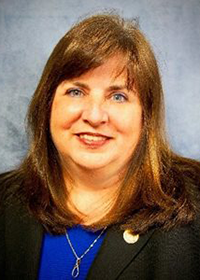District Court Judge

Beltrami County
View state court bio
Contact with Chambers
• Preferred method to contact chambers: Email
• To whom may attorneys direct scheduling/logistical questions? Court Administration.
• To whom may attorneys direct substantive questions? Filing document in court file.
• Set forth your practices and procedures for scheduling motion hearings. Party/Attorney contacts court admin for date and time.
• Identify any type of motion for which you do not require a hearing. Dissolution that meet 518.13 criteria; some continuance requests.
• Do you accept telephone calls from attorneys to rule on discovery disputes that occur during depositions? No.
• How much time do you allot for motion hearings? 0.5 to 0.75
• Set forth your practices and procedures with respect to attending a hearing by telephone or video conference. Nearly all civil hearings are held via zoom.
• Set forth your practices and procedures with respect to discovery motions. Hearing on the motion held on zoom.
• Set forth your practices and procedures with respect to stipulations of the parties, including stipulations for protective orders. If the paperwork and proposed Order is submitted, no hearing.
• Do you have any particular requests or procedures relating to requests to amend the scheduling order? If stipulated, simply sign. If no stipulation, set for hearing.
• Set forth your practices and procedures with respect to default proceedings. Held on the record.
• Set forth your practices and procedures with respect to handling emergency motions. Paperwork is submitted to court admin staff, who bring it to my attention.
• If your preferences for motion hearings by remote means differ from any of your earlier answers, please describe your preferences for remote video conference hearings. All of my hearings and scheduling conferences are recorded and on Zoom.
• Do you want to receive paper courtesy copies of the parties' written submissions? If you do, set forth the number of courtesy copies and identify any document type you do not want to receive. I do not wish to receive paper copies of anything. However, MNDES is not efficient for judges during the contested hearing.
• Set forth your preferences for handling informal requests for relief using the expedited, informal non-dispositive motion process set forth in Minn. Gen. R. practice 115.04(d). Seldom addressed.
Pre-Trial Procedures
• Set forth your practices and procedures with respect to the submissions of additional legal authority or other materials at or after oral arguments. I'm usually fairly prompt, so I've made my decision before they are submitted.
• Describe your preferred procedures for pretrial settlement conferences, including the timing of such conferences, persons who must attend, whether persons may attend by telephone or video conference, and how you participate in settlement discussions. Pre-trials are held via zoom but all parties must be present along with their attorneys. Usually held a month before the trial date. If represented, I do not participate in settlement discussions. If not, then I may address whether an issue is contested as a way of narrowing the trial. Sometimes, that spurs and agreement.
• Identify what technology you use in the courtroom and state whether you prefer a particular electronic format. Zoom. It has improved substantially since we began using it.
• Set forth your practices and procedures with respect to attorney’s use of technology in the courtroom and during trial. Some are very skilled and others shouldn't even try.
• Do you permit parties to bifurcate oral argument so different attorneys address different legal issues? Yes.